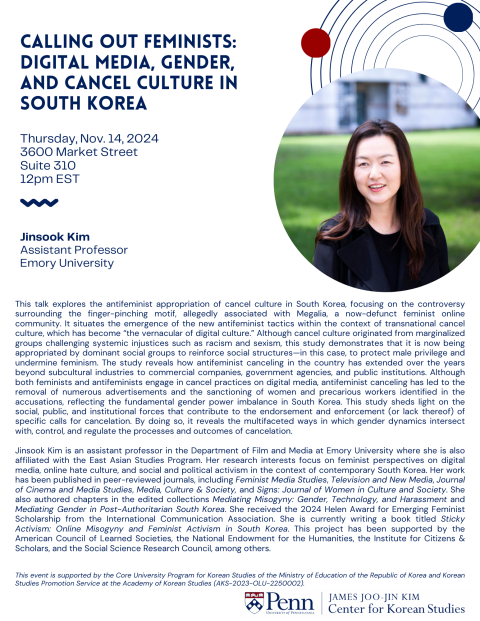
Korean Studies Colloquium
3600 Market Street
Suite 310
This talk explores the antifeminist appropriation of cancel culture in South Korea, focusing on the controversy surrounding the finger-pinching motif, allegedly associated with Megalia, a now-defunct feminist online community. It situates the emergence of the new antifeminist tactics within the context of transnational cancel culture, which has become “the vernacular of digital culture.” Although cancel culture originated from marginalized groups challenging systemic injustices such as racism and sexism, this study demonstrates that it is now being appropriated by dominant social groups to reinforce social structures—in this case, to protect male privilege and undermine feminism. The study reveals how antifeminist canceling in the country has extended over the years beyond subcultural industries to commercial companies, government agencies, and public institutions. Although both feminists and antifeminists engage in cancel practices on digital media, antifeminist canceling has led to the removal of numerous advertisements and the sanctioning of women and precarious workers identified in the accusations, reflecting the fundamental gender power imbalance in South Korea. This study sheds light on the social, public, and institutional forces that contribute to the endorsement and enforcement (or lack thereof) of specific calls for cancelation. By doing so, it reveals the multifaceted ways in which gender dynamics intersect with, control, and regulate the processes and outcomes of cancelation.
 James Joo-Jin Kim Center for Korean Studies
James Joo-Jin Kim Center for Korean Studies